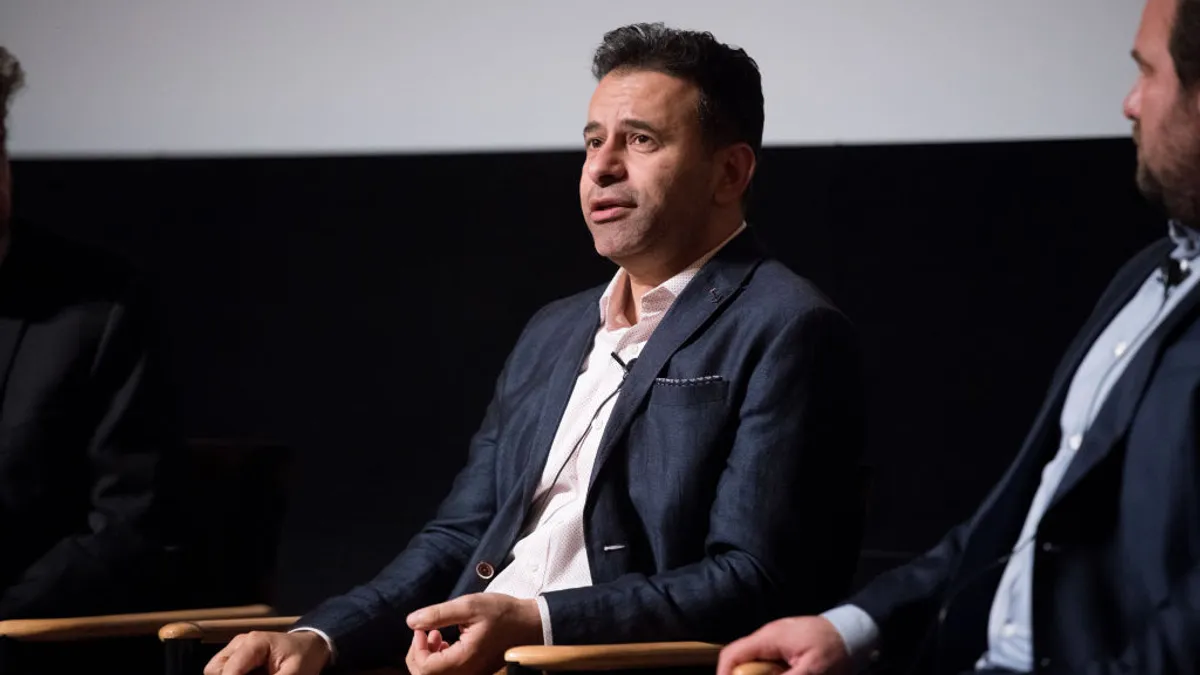Taren Grom
Dr. Brad Thompson, Executive Chairman, CEO, and President of Oncolytics Biotech Inc., is excited about the opportunities that his company and the biotech field in general can have to make transformative changes in the standard of care for patients. Dr. Brad Thompson has a personal connection to the biotechnology field, particularly in the area of oncology, where he has spent the majority of his 20-year career trying to make a difference. For the past decade, Dr. Thompson and his Oncolytics team have been concentrating on moving Reolysin, a novel virus agent, through a regulatory pathway that’s largely ill-defined because there are no product approvals using this particular type of agent. Currently, Oncolytics is moving toward the finish line. Reolysin is now in Phase III studies in 12 countries for treating second-line head and neck cancer patients. Dr. Thompson says data show Reolysin appears to be active in more than just one indication, and a number of additional studies are ongoing for other cancer types, including relapsed multiple myeloma, pancreatic, refractory solid tumors, ovarian, squamous cell carcinoma lung cancer, metastatic melanoma, and non-small cell lung. Dr. Thompson shares his insights on starting up a biotech company, describes what he believes are the transformative change agents in the field, and provides advice to other entrepreneurs looking to take a calculated risk. The Personal Connection The genesis of Oncolytics was interesting and personal for Dr. Thompson, who was literally sitting in his office at his previous company, when he received some life-changing news. “I was happy doing what I was doing, when I was diagnosed with melanoma," Dr. Thompson says. “Shortly thereafter, I had two very close relatives die, one from lung cancer and one from head cancer. “These experiences gave me a very heightened awareness of oncology on a personal scale," he continues. “This personal connection is typical in our industry. There are many people working in specific areas because they have personal experiences with a disease." In starting Oncolytics, he was impressed by the science, and was taken by his colleague Dr. Matt Coffey’s Ph.D. thesis. “I am a real tech nerd at heart, and I needed to make sure his work had a chance to be tested in humans." Making a Real Difference According to Dr. Thompson, biotechnology has made a real difference in the standard of care in a number of what had been previously untreatable or intractable diseases. For example, he cites all of the original work that Amgen did on anemia as a result of chemotherapy; the human growth hormone experience for children with restrictive growth conditions; and in the more modern era, the new antibody therapies in oncology. “All of these advances came out of the biotechnology world and all have made a real difference in the standard of care in these particular conditions," he says. “There is a commonality within the biotech industry, and that is we generally aren’t interested in small, incremental improvements, we want to make big leaps." A Transformational Shift For Dr. Thompson, the application of genetic screening techniques to individual patients as a predictor of response has the biggest transformative change he has observed. “We’ve been really fortunate in the last 15 or so years to have made great advances in evaluating what causes disease from a genetic perspective and what’s correlated with disease from a genetic perspective," he says. “These data allow us to take advantage of the correlations to help tailor therapies to an individual." Dr. Thompson says a distressingly large percentage of patients, anywhere from 30% to 90%, do not respond to oncology treatments or therapies, and every cycle or triage therapy is precious to the patient. “We have the best chance to make a difference to a patient’s outcome the very first time he or she is treated, to a much lesser extent, the second time, and to a much, much lesser extent, the third time," he says. “So if we can match up what drugs work — or are supposed to work — with a patient’s genetic profile, then we can save the patient undergoing unnecessary therapy or provide him or her with the therapy that has the best possible chance of working. This advance has been a huge revolution in how we look at things." In the case of Reolysin, by using two very routine mutational status markers (EGFR and K-ras) to screen patients, the company can capture between 95% and 100% of patients who might respond to the product. “The ability to do this with a couple of simple tests is a total change compared with where we started a decade ago, when we were essentially treating patients blind," Dr. Thompson says. A Driving Passion With respect to being an entrepreneur in the biotech space, Dr. Thompson says one of the most important traits is being nonrisk adverse. “When starting a company, you are putting your whole being into a technology that is usually unproven," he says. “So you have to have a lot of — for a lack of a better word — faith in what you’re doing." There is a common theme throughout the biotech industry, he says. While people certainly have a business eye toward technology and commercialization, they also have a personal link to the science. “The typical profile of a biotech entrepreneur is somebody who looks at a technology, sees the potential, and then dives in to do whatever is necessary to see if the technology works," Dr. Thompson says. “The biotech community is a very unique group of people, and there are very large number of people who fit this profile. “I always remind people who are thinking along the lines of starting a company, that it’s not that difficult," he says. On the Horizon Dr. Thompson says there are several factors that will have a significant impact on the biotech industry in the near future, but cost containment on reimbursement is going to be the single most important issue that affects the sector. “The Pharma 3.0 model encompasses what biotech is really good at, and that’s ability to bring new products to bear in new areas," he says. “I’m not talking about a fifth-generation platinum-based drug for oncology therapy that’s going to work 3% better than its predecessor. I’m talking about highly innovative science. I can see a future where biotech is the innovator and big pharma is the cleanup hitter, to use baseball parlance. Bradley G. Thompson, Ph.D. » Dr. Brad Thompson has served as an Executive Chairman, CEO, and President of Oncolytics Biotech Inc., since cofounding the company in April 1999. » He served as CEO of Iteration Energy Ltd. from May 1994 to February 1999. » Before Iteration Energy, Dr. Thompson was the Head of Biotechnology at The Alberta Research Council; he held a variety of other positions from 1983 to May 1994. » He serves as the Chairman of BIOTECanada and also currently serves or has held director positions at a number of biotech-related companies. » Dr. Thompson received a B.Sc. from the University of Alberta and a Ph.D. from the University of Western Ontario. PODCAST Dr. Brad Thompson: Making a Big Difference bit.ly/PV0112-ThompsonDifference











